Italy referendum: How world reacted to shock vote that put EU in crisis mode
Right-wing politicians credit rise of populism, but EU officials play down 'uncertainty'
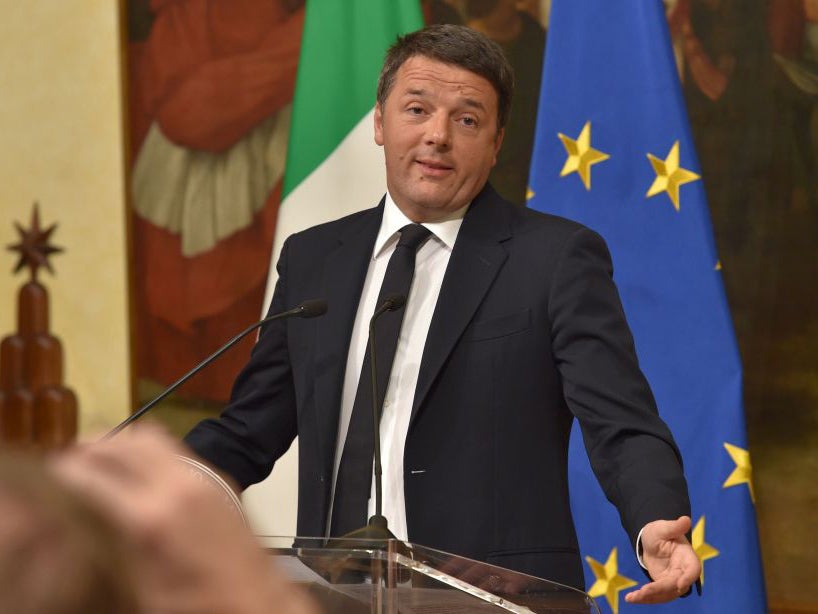
Your support helps us to tell the story
From reproductive rights to climate change to Big Tech, The Independent is on the ground when the story is developing. Whether it's investigating the financials of Elon Musk's pro-Trump PAC or producing our latest documentary, 'The A Word', which shines a light on the American women fighting for reproductive rights, we know how important it is to parse out the facts from the messaging.
At such a critical moment in US history, we need reporters on the ground. Your donation allows us to keep sending journalists to speak to both sides of the story.
The Independent is trusted by Americans across the entire political spectrum. And unlike many other quality news outlets, we choose not to lock Americans out of our reporting and analysis with paywalls. We believe quality journalism should be available to everyone, paid for by those who can afford it.
Your support makes all the difference.Matteo Renzi’s overwhelming referendum defeat in Italy has left the world contemplating the implications on global politics and stock markets.
Many international publications interpreted the result as another victory for the wave of anti-establishment populism that saw Donald Trump win the US presidency and the UK vote to leave the European Union.
The Italian referendum, introduced by centre-left leader Mr Renzi, asked voters to approve constitutional reform that would have taken power from the Senate and handed it to the prime minister.
Mr Renzi, the 41-year-old leader since February 2014 – who faced growing opposition from far-right parties – vowed to resign if he lost.
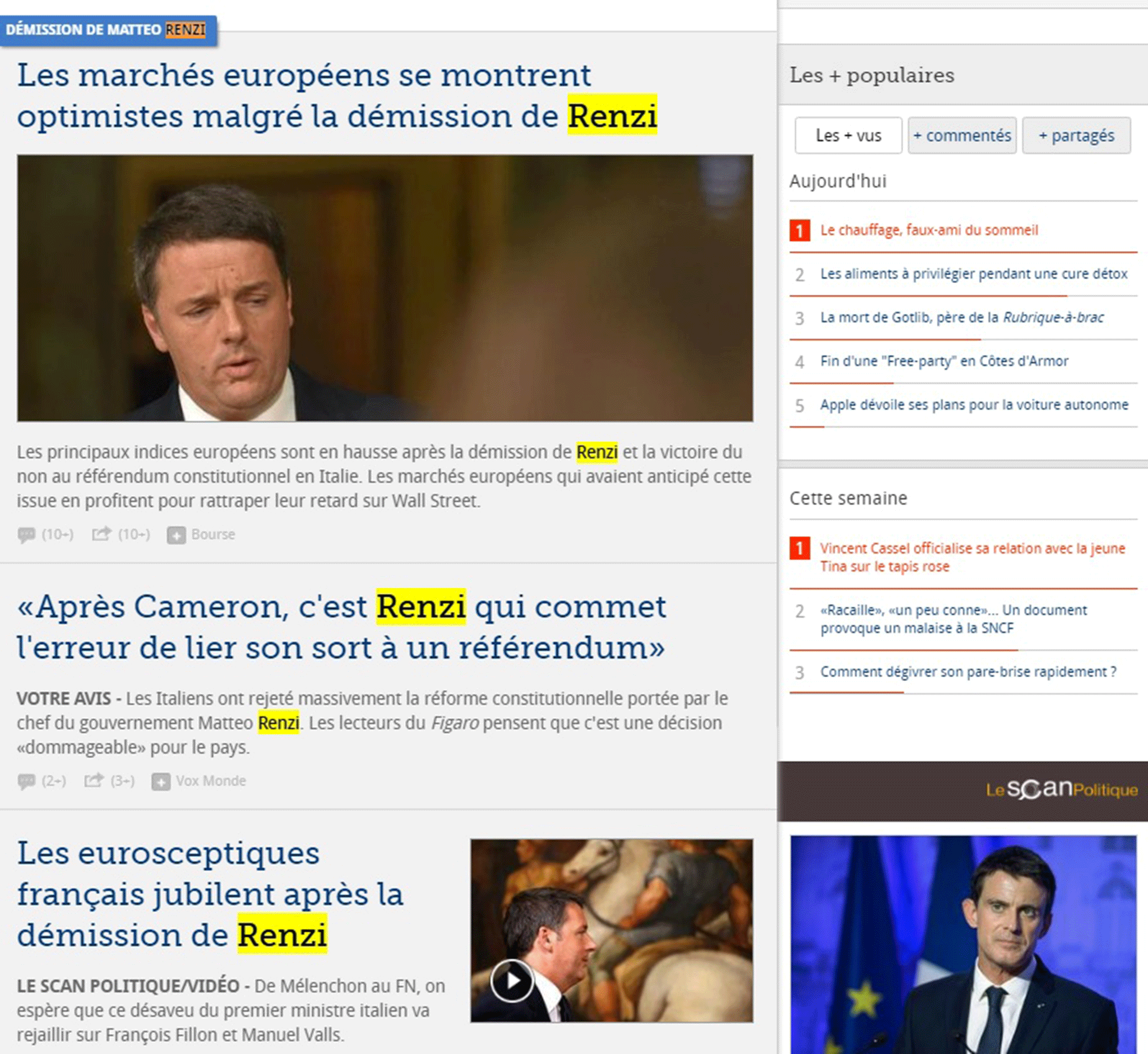
In France, far-right leader Marine Le Pen said: “The Italians have disavowed the EU and Renzi. We must listen to this thirst for freedom of nations and protection!”
The anticipated presidential election bid of the country's Prime Minister Manuel Valls edged the Italy referendum off from its front pages, but the story is featured on its various news websites.
Most of Le Figaro's headlines shrug off speculation that the referendum is a blow for the EU. Headlines include "European markets show optimism despite Renzi's resignation".
It also draws comparisons between Mr Renzi and David Cameron, with one headline reading: "After Cameron, it is Renzi who makes the mistake of linking his fate to a referendum."
But European Central Bank policymaker and Bank of France governor Francois Villeroy de Galhau said Italy's referendum result and Brexit could not be compared.
“The referendum in Italy yesterday may be deemed as another source of uncertainty,” he said during a seminar in Japan.
“However, it cannot be compared to the British referendum. Italian people have been called to the polls to vote on an internal constitutional matter, and not on Italy’s long-standing EU membership.”
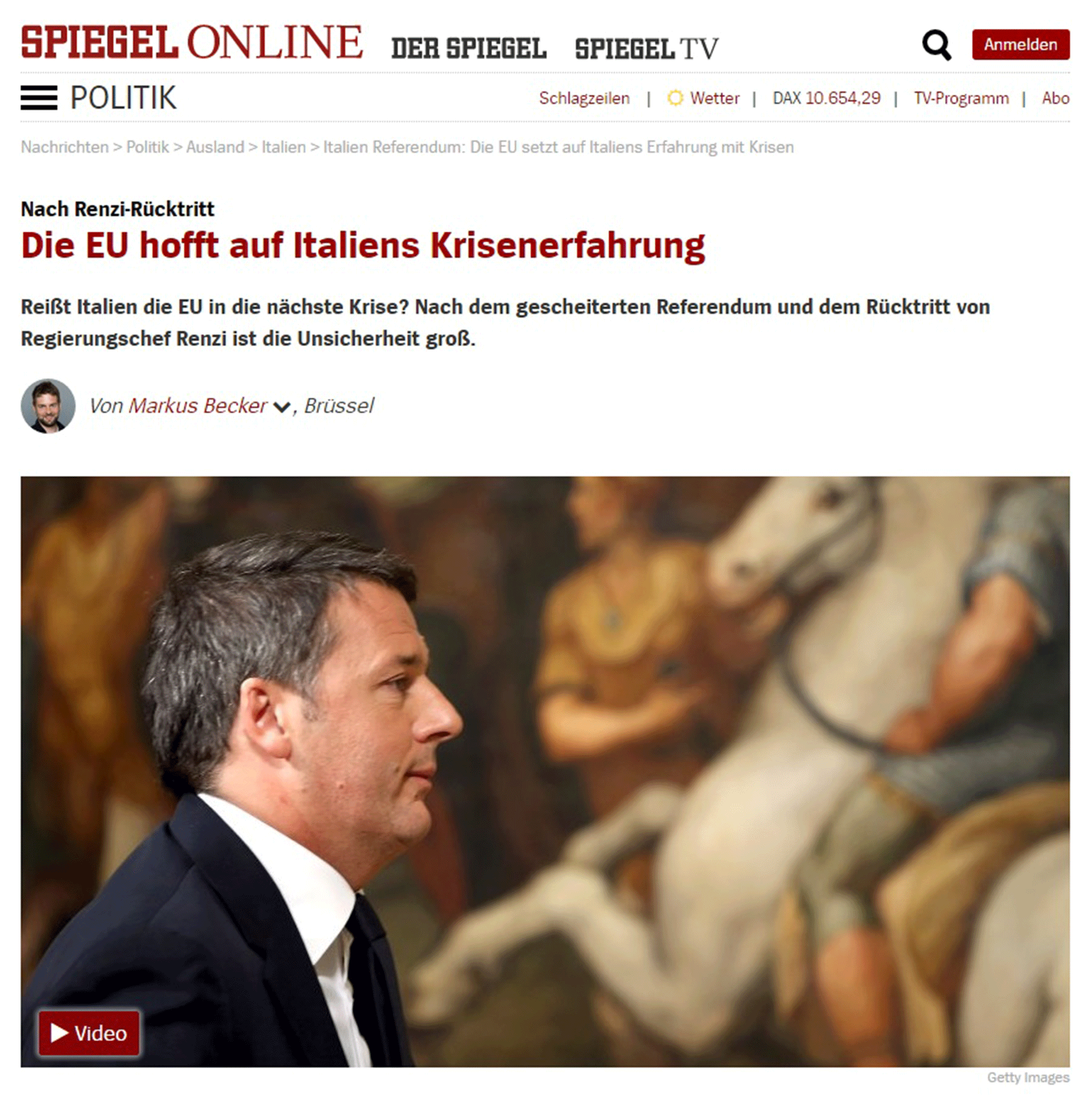
In Germany, Spiegel Online's top Italy referendum story reads: "Is Italy breaking the EU into the next crisis? After the failed referendum and the resignation of Prime Minister Renzi, the uncertainty is great."
Chancellor Angela Merkel, seen as the uniting face of the EU, said: "I am sad that the referendum in Italy did not turn out as the prime minister wished because I always supported his reform policies but it is of course a domestic Italian decision that we must respect."
German foreign minister Frank-Walter Steinmeirer said during a visit to Greece that the result was “not the end of the world” but that the country was watching developments “with concern”.
Similarly, EU Finance Commissioner Pierre Moscovici is playing down the impact of Italy’s referendum on the Euro and the continent’s unity, adding: “I’m very confident in the capacity of the Eurozone to resist all kinds of shocks.”
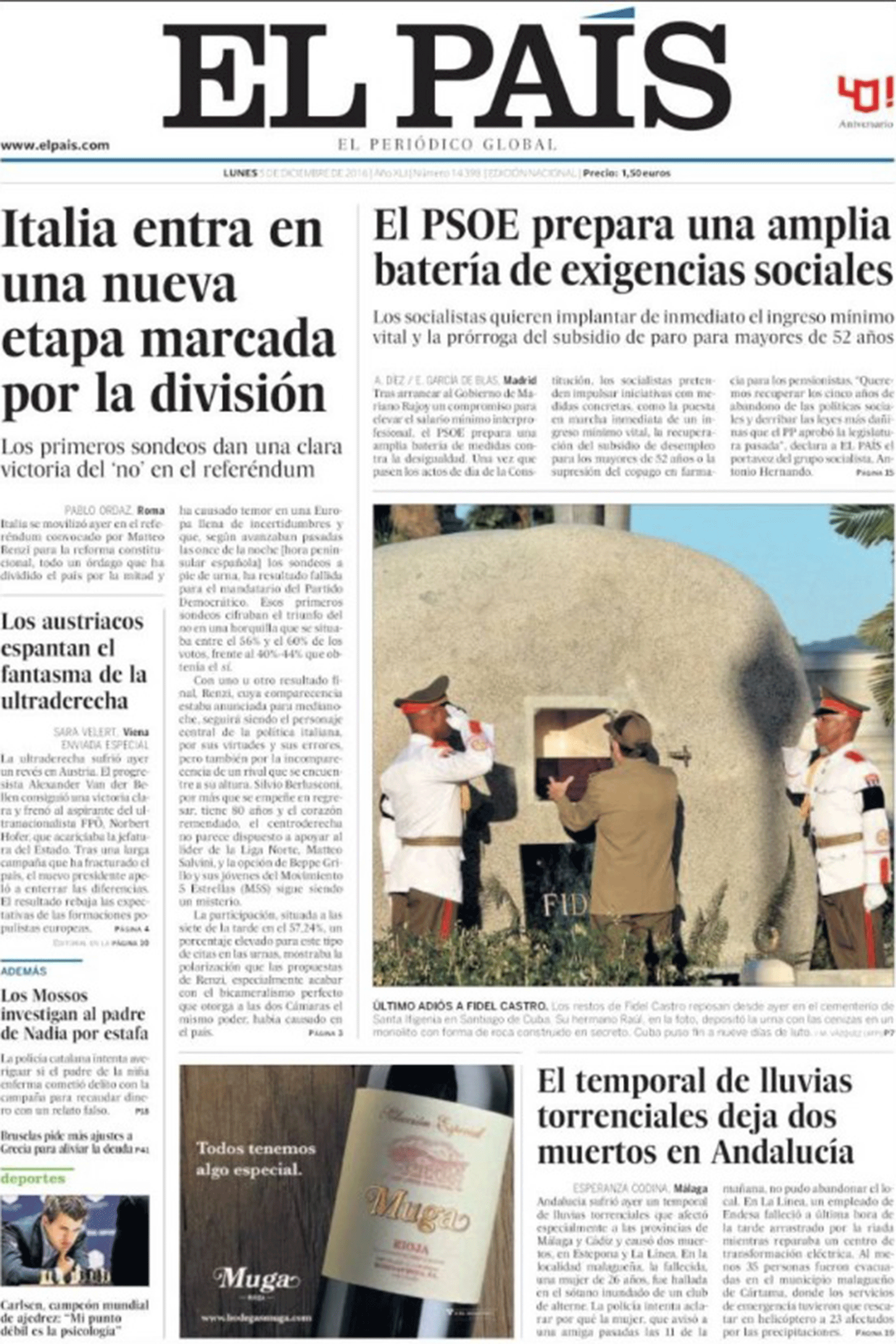
The result was comprehensively covered in Spain, a country that like Italy, struggles with youth unemployment and GDP growth, but whose population are generally pro-EU.
El País wrote: "Italy enters a new stage marked by division." La Vanguardia wrote: "The failure of Renzi opens a crisis in Italy and the EU."
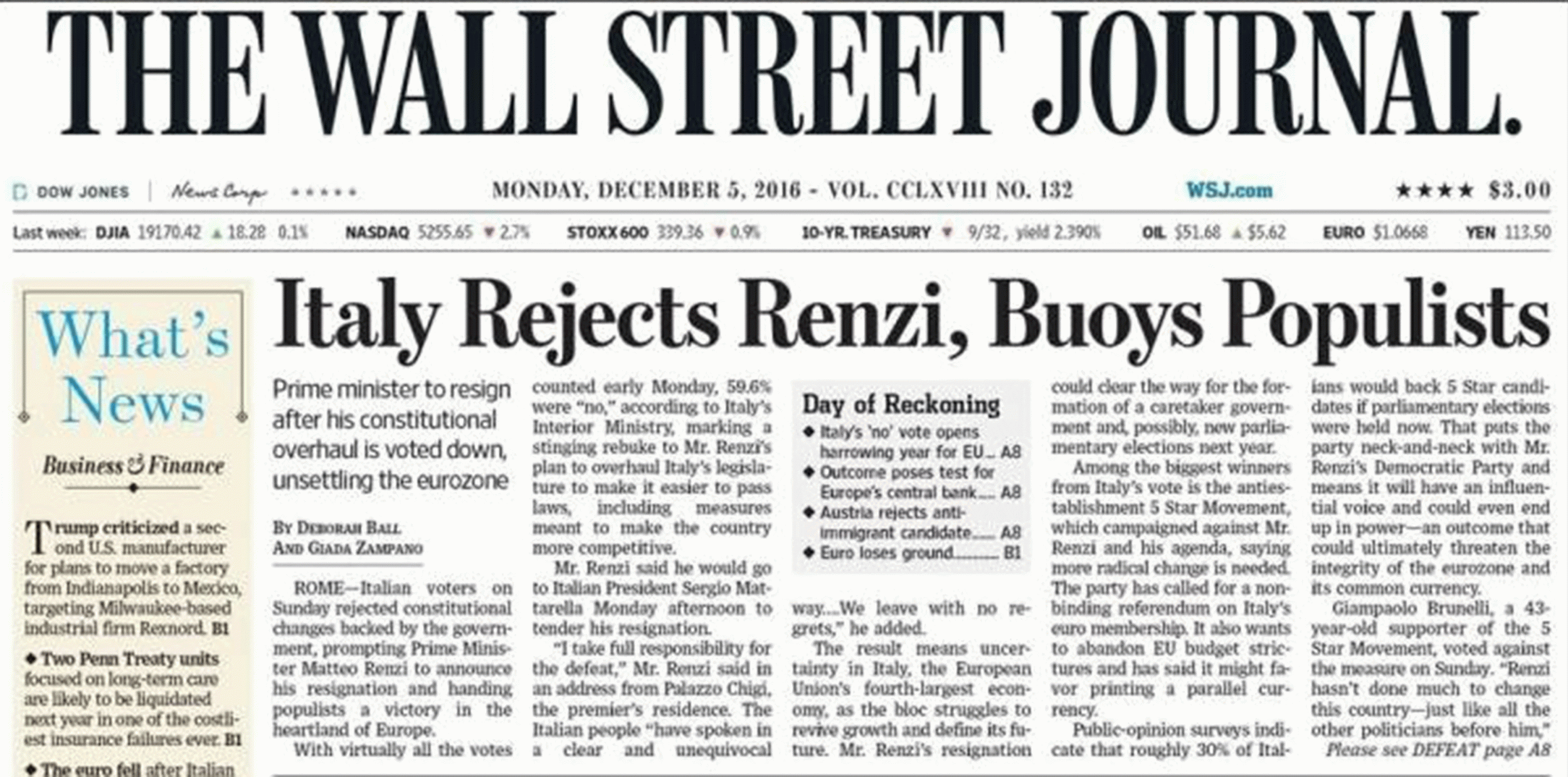
In the US, the Wall Street Journal repeatedly referred to the result as a win for populism.
It described Mr Renzi’s defeat as having handed “populists a victory in the heartland of Europe”.
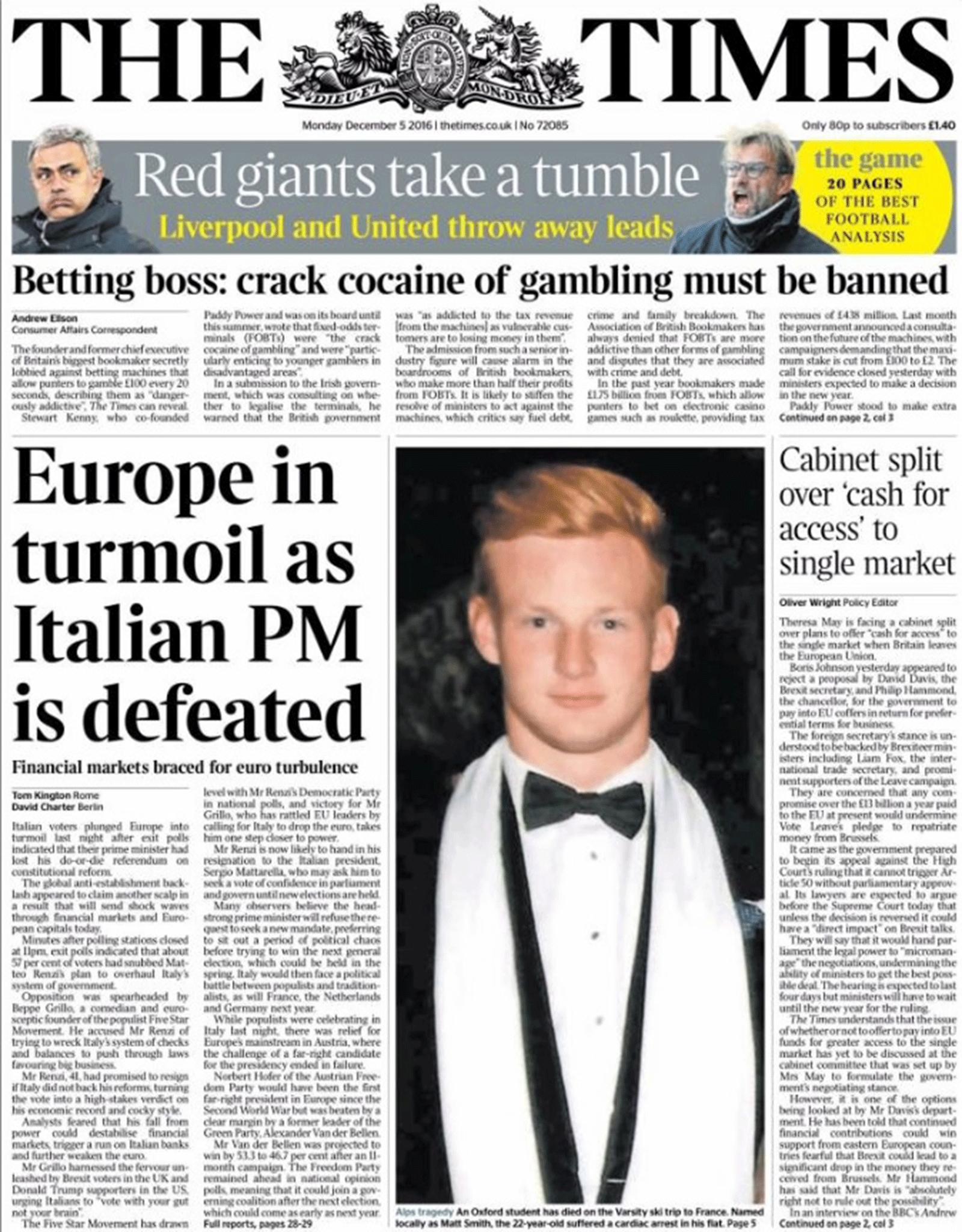
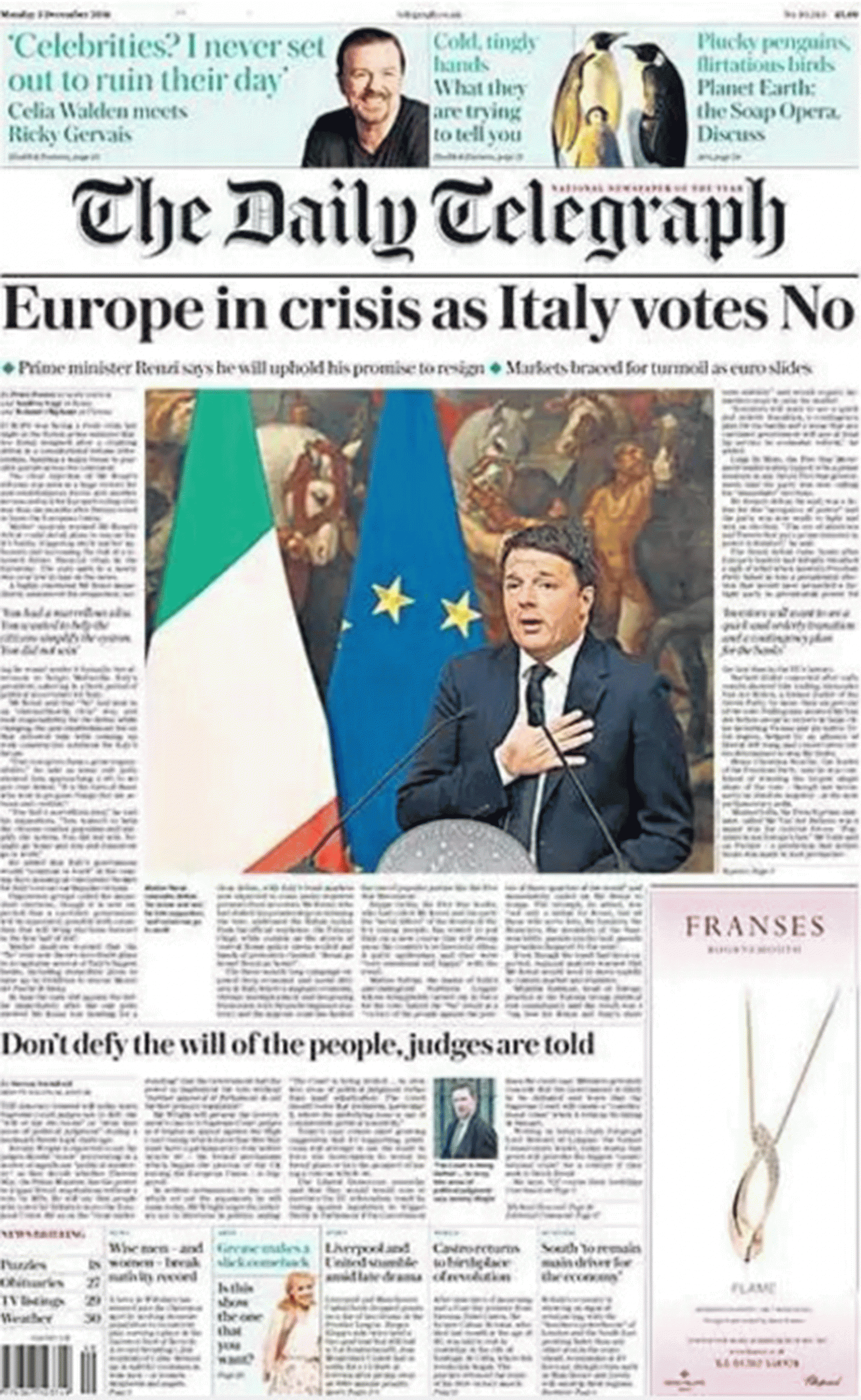
In the UK, newspapers discussed the implications on the EU and again, the effect of populism. The Times wrote: “Europe in turmoil as Italian PM is defeated”.
Former Ukip leader Nigel Farage said the vote looked to be “more about the Euro than constitutional change”.
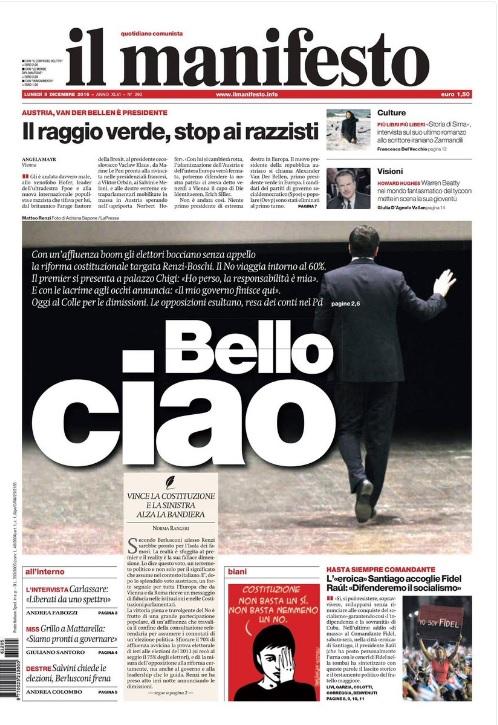
The Italian press focused considerably on Mr Renzi's resignation. The front page of Il Manifesto showed the departing leader walking away from shot, adorned with the words: "Bye beautiful".
In the referendum aftermath, the Euro slid to a 20-month low against the dollar on Sunday and European stock markets opened in the red on Monday.
A former Italian Treasury economist said the Italy referendum result had nothing to do with the EU.
Shares in Asian stock markets also took a hit on Monday as the Euro’s value slipped.
Join our commenting forum
Join thought-provoking conversations, follow other Independent readers and see their replies
Comments